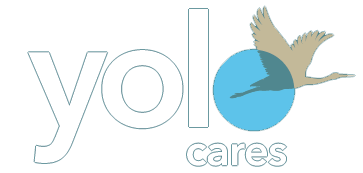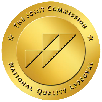A Planned Farewell
By: Craig Dresang, CEO, YoloCares
Sam was a thoughtful, highly practical, and independent soul. Family members described him as tough but tender. His five decades as a top dog in the legal profession had earned him the title of “Super Lawyer” and midway through his career he was recognized as one of “The Best Lawyers in America.” He was strategic and purposeful in both his profession and his family life.
When his doctor had confirmed a rare dual diagnosis of Amyotrophic Lateral Sclerosis (ALS) and Multiple Myeloma, he told me, “I felt relief. For the first time in a few years, this heavy burden of not knowing what was wrong with me was lifted from my psyche. Living in the unknown and not having answers was torturous. I always said I could deal with anything if I know what I’m dealing with, and now I know.” Since his 80th birthday two years ago, Sam had endured six hospitalizations; a tsunami of tests, procedures, and medical appointments with four different physicians; endless adjustments to medications that all carried undesired side effects; and the weight of not knowing what was wrong or if he would ever feel better.
After his physician confirmed a diagnosis, Sam did his own research and then followed up with more questions for his medical team. Good outcomes seemed nonexistent, and the idea of getting better was a pipe dream. “The future appeared pretty bleak,” Sam said. “The trajectory of either disease was depressing. I have already experienced a major decline in the quality of my life”, he told me. “A year ago, I was driving my car, biking three days a week, walking our dogs, putzing around in my garden, and traveling comfortably. Now, I can’t do any of those things. My eyesight is failing so I can’t read, and I’ve lost the ability to manage my own finances and checkbook. I am basically homebound and unable to enjoy any of the things that once brought me joy and made my life meaningful.”
Upon his doctor’s advice, Sam and his family reached out to YoloCares to inquire about palliative and hospice care. He originally told his physician that he wanted a healthcare provider that would support his decision to participate in California’s End-Of-Life Option Act (EOLOA). The Act, which passed in 2015 and went into effect in 2016, allows eligible adult residents with a terminal illness to request and self-administer medication to end their lives. It is not euthanasia, as the patient must self-administer the medication. The law emphasizes voluntary participation from both patients and physicians. The hospice provider does not take an active role in prescribing or administering the prescription, however, organizations like YoloCares can support the patient’s decision and continue to provide care, comfort, and support.
Sam’s physician told him that many terminally ill people secure a prescription for the EOLOA drug but never use it. Often, patients come to see that their hospice provider can adequately manage their pain and symptoms. When patients are kept comfortable and can still enjoy the company of loved ones, they often decide to not use the end-of-life prescription, and instead, let nature take its course. However, Sam wanted to know that he had the choice of ending his life before his suffering became too much. “Or,” he explained, “before I am no longer able to make the decision for myself.”
Even though the hospice philosophy of care does not aim to hasten death, it does not take measures to postpone death either. The goal of hospice is to add life to days when adding days is no longer possible. It prioritizes comfort over the prolonging of life and seeks only to improve quality of life for someone who is terminally ill. Sometimes that closing chapter can be hours, weeks, months or even years.
At the heart of good hospice care is a commitment to align a patient’s values and end-of-life goals with the care they receive. Whatever is important to the patient should be equally important to the hospice provider. For Sam, that meant having a team of care providers who would honor and support his decision to determine the date and time of his own death.
When Sam landed on a date when he would ingest his EOLOA medication, he sent out an advance three-week notice to his family and a few close friends. They were all invited to his home on the day he selected. About 20 of them showed up to his house on a warm Thursday morning. As they arrived, he sat as though holding court, in the center of his garden which was in full bloom. It did not take long for story sharing to begin. Soon, laughter and loving conversation filled every corner of the backyard. Tender memories and expressions of love flowed freely in the spaces between coral colored rose bushes and branches of fig and orange.
The morning had become a living memorial service where the dearly departed had not yet departed. There was somberness and sadness to the occasion, but there was also a sense of sacredness and profound gratitude. Sam’s final gift to his loved ones was nothing short of extraordinary. Each person who participated in his sendoff had the occasion to express their affection and fondness for him, and to say goodbye. They also shared in the company and support of one another after Sam swallowed the physician’s concoction and peacefully drifted into another realm. In return, Sam’s gift to himself was the ability to fall asleep with one hand being held by his wife and the other by his son . . . in a familiar space filled with people he loved and a lifetime of memories. The three of them, immersed in the exquisiteness and purity of the moment, were held by the bond of loved ones in the room. In the most extraordinary way, we were all gifted, one more time, with his presence and participation in our lives.





Leave a Reply